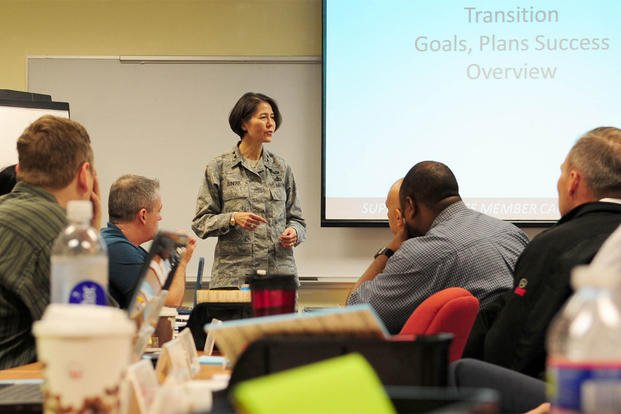For many veterans, finding a job or launching a post-military career can be more daunting, overwhelming and challenging than military life ever was. In reality, most service members are ill-prepared for the heavy competition for limited job opportunities.
Many former servicemen and women find themselves unemployed or underemployed during their first years out of the military. This is particularly true for those who lack a college degree. A disproportionate number will accept jobs that do not align with their skills and abilities. Adding to the problem, far too many employers fail to recognize the maturity, professional development and leadership qualities a veteran can bring to their organization.
Fortunately, transitioning service members can take several steps to overcome these challenges. But the best advice for those leaving the armed forces is to take the job search seriously. Be determined, disciplined and tenacious, and do your homework. According to some reports, it can take a minimum of 30-40 hours of work to land a job. The higher salary, the more time and effort required.
Before you begin your transition, you need to be prepared for the reality that you will most likely have to live on a much tighter budget due to reduced pay, and the loss of the allowances you currently receive. In addition, you will likely have to spend a bit on civilian clothing and other expenses related to the job search, such as career development and job-search courses, seminars and workshops, counseling and employment agency fees.
You can create personalized transition checklists and get resources for your transition in the Military.com Transition Center.
1. The Basics in Your Job Search
As you move into your job search, take stock of your values and needs. Many experts recommend that you ask yourself the following questions:
- What kind of work do you want to do?
- Where do you want to do this work?
- Who is the person with the authority to hire you?
Furthermore, you will need to start working on improving your networking skills, resume writing and interviewing techniques.
When it comes to clinching the job, experts say that it boils down to answering the big five employer inquiries:
- Why are you here?
- What can you do for us?
- What kind of person are you?
- What distinguishes you from other applicants?
- Can I afford you?
Probably the best way to find a job is to tell everyone: family, friends, neighbors, retirees, strangers -- everyone. In addition, there are a myriad other networking and job-assistance resources to draw on. Visit the Military.com Veteran Employment Center to learn more and get expert advice on improving your networking, writing and interview skills.
2. Tests and Assessments
Pre-employment testing is a fact of life in today's job market, especially for better-paying jobs, but even for entry-level and minimum-wage jobs. Tests can measure basic skills and aptitude, your psychological profile and physical levels, your medical and drug history, your truthfulness (i.e., the polygraph) and evaluate you in areas such as loss prevention, equipment operation and computer literacy.
Personality and occupational inventories (self-assessments) help answer two important questions about you: Who are you, and what do you do best? One good tool for determining your personality-occupational potential is the Strong Interest Inventory Test. Most military bases, adult education centers and community colleges offer this test, as well as numerous others, for free or for a nominal fee.
3. Must-Have Items in Your Job Search
The following is the list of items you should have available during a job search, many of which can be taken to an interview session:
- Completed (sample) "master application form" that includes date of birth, Social Security number, addresses, phone numbers, ZIP codes, references, memberships, account numbers, family information, employment history, education and training, special skills, licenses/credentials and other relevant information
- Identification and business cards
- Copies of resume(s)
- All correspondence with the prospective employer
- Letters of reference and introduction
- Social Security card
- Military discharge papers (DD-214, etc.)
- Driver's license
- School and college transcripts
- Writing paper, pens, pencils, notepads, 3x5 cards, paper clips, rubber bands
- Letter-sized envelopes, thank-you cards, stamps
- Change for tolls and parking meters
Keep in mind that you need to involve your family in their plans and searches, share your feelings and disappointments, and ask for help. Doing so can mean the difference between success and failure. It is attitude, not aptitude, that helps determine your altitude in life. A positive outlook and proper preparation will prove invaluable as you face this stressful, demanding challenge.
Find the Right Veteran Job
Whether you want to polish your resume, find veteran job fairs in your area or connect with employers looking to hire veterans, Military.com can help. Subscribe to Military.com to have job postings, guides and advice, and more delivered directly to your inbox.












